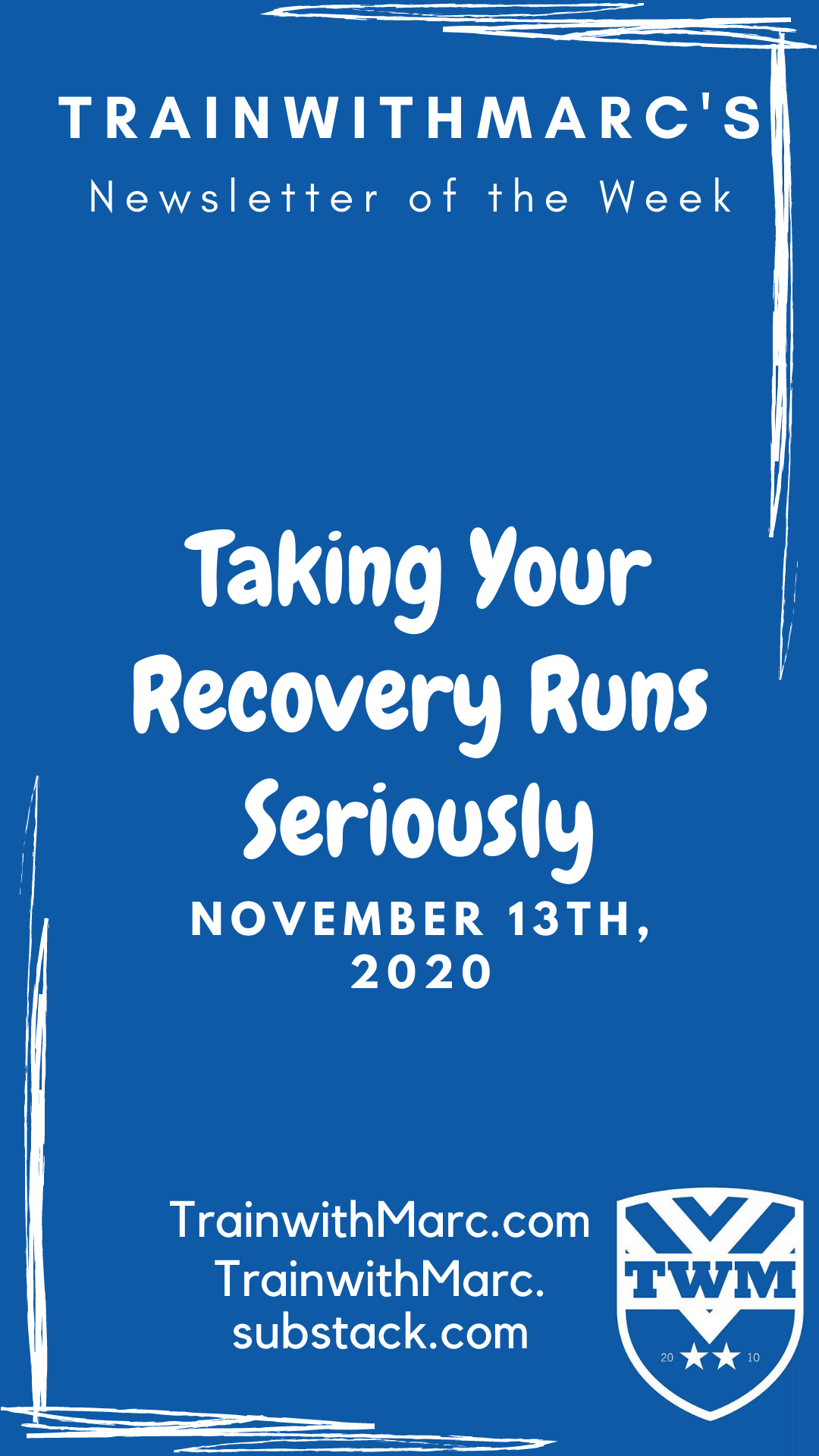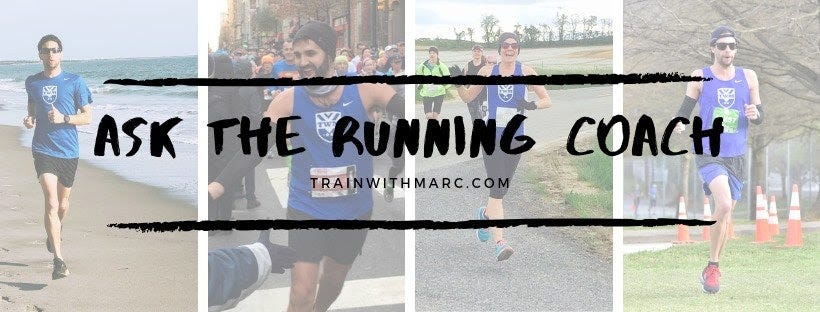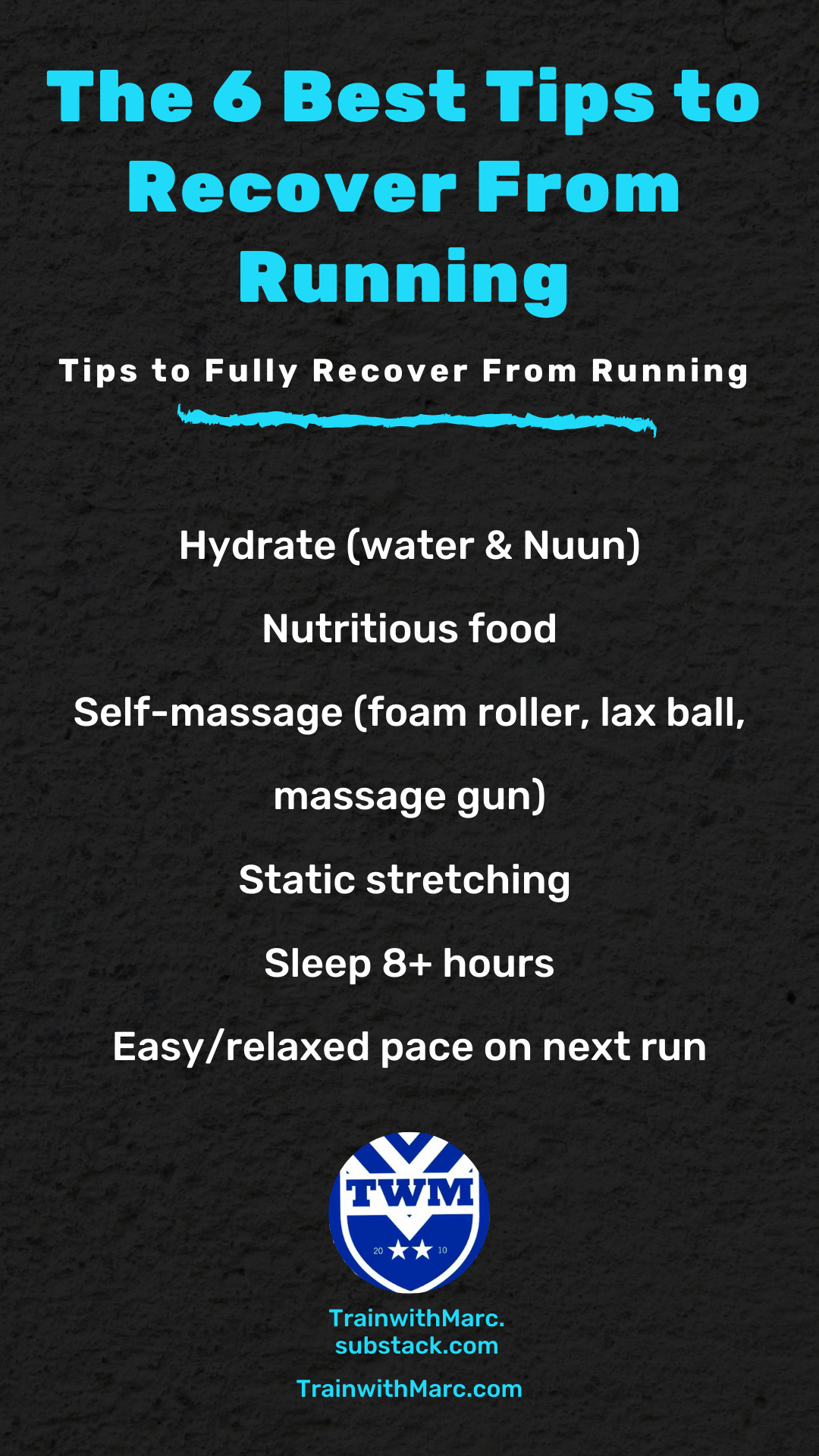Earlier this week, I was desperate for a recovery run.
WHY I USE RECOVERY RUNS
I had beat myself up pretty good with some long running and some strength training. I still needed to run, but I wasn’t about to log some more fast miles. I opted for a recovery run - which for me, I usually take at least 2 a week. These are different from a basic run (a run that isn’t a long run or a workout).
When I was much younger, most of what I talk about below would apply, except the amount of mileage and the pace. Let me explain.
When my weekly mileage was higher, my recovery runs were proportionally higher too. So if my weekly mileage was 70 miles a week, I would have a 14 mile long run and two 10 mile workout days. The rest of the mileage was spread out over the remaining 4 days. Often, when my mileage was at its peak, Saturdays would be 5 miles. That meant that my basic runs were anywhere from 7-9 miles - just the pace would be controlled.
THE DIFFERENCE BETWEEN BASIC AND RECOVERY
Here are my distinctions between a basic run and a recovery run…
A typical basic run is easy by nature, but my running pace is what it is. Sometimes it’s as slow as 8:30 or as quick as 7:45. I run by feel so my GPS data is not looked at. My basic run distance is anywhere from 3-6 miles.
A recovery run is usually the day or two days after a hard run. These are the days I am dragging, I’m sore, and I just need to get something done. I rely more on my GPS to ensure that I’m running slow enough. So much so, that I often bring the dog or kids on my run to make sure the pace is slow. Slow running is still good-for-you running. Embrace it. These runs are typically 3-5 miles and my pace will never dip below 8 minutes. This is on purpose.
REASONS TO RECOVER
The whole goal of a recovery run just to make sure your body is actually recovering from the stress is you’ve put on it. After a hard day (post-workout/long run), my body needs an easy effort run. The pace of these runs can easily be 30 seconds to 1 minute slower PER mile.
Another reason why I use recovery runs so generously throughout the week is because I run hard or long multiple times a week. These runs counterbalance the hard days. They also happen to be the days that are the hardest to do.
TIPS TO RECOVER
Run by time instead of distance
Run on soft surfaces so that your pace is slower by nature
Get hydrated! Drink lots of fluids
Hold a conversation. If you can talk in paragraphs, your pace is easy.
Do an active warmup
Do static stretches and massage after your run
Friday’s Action Plan:
Use recovery run days to actually recover. Running too fast on easy days only puts you further in the hole and doesn’t allow you to actually recover.
Big Events Coming Up:
Alumni Old-Timers 5k
What’s Got My Attention:
Article: The Case for Running Lower Mileage to Avoid Overtraining
Podcast: How to get rock solid stability and why you need it
Popular Articles on the Blog this Week:
6 Strategies Runners Need to Use to Recover From Racing
Popular Newsletter Sessions:
My Argument for Being a Morning Runner
Quote of the Day:
“If you are afraid of failure you don't deserve to be successful.” -Charles Barkley
List of the Week:
Connect with me:
I’m on Instagram
I’m on Facebook
I’m on Twitter
I'm on TikTok
Here’s my blog
Thanks for following along on the journey! Have something you’d like to add? Have suggestions or comments? Email me: TrainwithMarc@gmail.com
If this resonates with you, I would love it if you could share it.
Marc is a middle school teacher and coach but also works with distance runners online. I help distance runners around the globe by providing support, writing customized training plans, and designing workouts to help them reach their racing goals. I write for my blog every Wednesday morning and newsletter every Friday morning.







